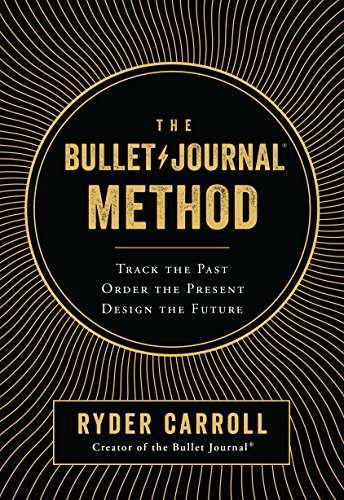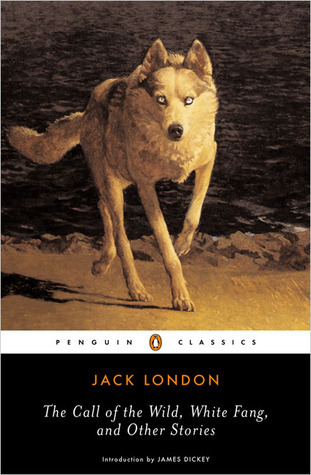
The Bullet Journal Method: Track Your Past, Order Your Present, Plan Your Future
by Ryder Carroll
30 popular highlights from this book
Key Insights & Memorable Quotes
Below are the most popular and impactful highlights and quotes from The Bullet Journal Method: Track Your Past, Order Your Present, Plan Your Future:
“Inevitably we find ourselves tackling too many things at the same time, spreading our focus so thin that nothing gets the attention it deserves. This is commonly referred to as "being busy." Being busy, however, is not the same thing as being productive.”
“In the most connected time in history, we're quickly losing touch with ourselves.”
“Each Bullet Journal becomes another volume in the story of your life. Does it represent the life you want to live? If not, then leverage the lessons you've learned to change the narrative in the next volume.”
“Like building muscle, we need to train our intentions to make them resilient and strong.”
“It's part organization, part soul-searching, part dream-weaving.”
“Cultivating this self-awareness is a lifelong process, but it starts by simply checking in with yourself.”
“Mark Twain once wrote, “I’ve had a lot of worries in my life, most of which never happened.”49 Worry has a way of holding our attention hostage. This is especially true for things we can’t control due to the elevated level of uncertainty. We burn through a lot of resources obsessing over possible outcomes and forming contingency plans, but in reality we’re just fueling our anxiety. Trying to think our way out of situations beyond our control may feel productive, but it’s nothing more than a powerful distraction. Worry baits us with the promise of a solution but usually offers none.”
“I was so caught up in my own misery that I forgot a simple truth: As long as our hearts are beating, there is always opportunity.”
“Many painters are afraid of the blank canvas, but the blank canvas is afraid of the painter who dares and who has broken the spell of “you can’t” once and for all. —VINCENT VAN GOGH”
“The more content you try to capture during a lecture or a meeting, the less you're thinking about what's being said. You burn through most of your attention parroting the source.”
“We burn through a lot of resources obsessing over possible outcomes and forming contingency plans, but in reality we’re just fueling our anxiety.”
“For most of us, “being busy” is code for being functionally overwhelmed.”
“Worry baits us with the promise of a solution but usually offers none.”
“Of all the challenges you’ll face along the way, endurance often proves to be the most cunning and lethal adversary. Big goals therefore must be fueled by an authentic need that will help you weather the days, months, or even years it takes to fulfill them. That need must be strong enough to fortify you against the siren songs of distraction, excuses, and doubt that will beckon you toward the rocks.”
“We must take it upon ourselves to grow. We grow by learning, and we learn by daring to take action. There will always be risk, because we can’t control the outcome. This is the way of life, and it’s unavoidable. What is avoidable, however, is being perpetually haunted by all the things that could have been if you had only dared. Begin by giving yourself permission to believe you’re worth the risk.”
“We rewrite things until we get them done or they become irrelevant.”
“No matter how bleak or menacing a situation may appear, it does not enitrely own us. It can't take away our freedom to respond, our power to take action.”
“There never has been, nor will there ever be, another like you. Your singular perspective may patch some small hole in the vast tattered fabric of humanity. Uniqueness alone, however, does not make you valuable. If you don’t do, if you don’t dare, then you rob the world—and yourself—of the chance to contribute something meaningful.”
“Prioritize the items you feel strongest about or are the most time sensitive, and strike off the items you feel “meh” about. We’re not here to design a lukewarm life.”
“It's not about living a perfect life, an easy life, or getting things right all the time. It's not even about being happy, though joy often greets you along this path. Leading an intentional life is about keeping your actions aligned with your beliefs. It's about penning a story that you believe in and that you can be proud of.”
“Our lives are lived in season of more, seasons of less, seasons of triumph, seasons of loss. Each season sees our needs change. We live, learn, and adapt. So, too, must our definition of meaning. Things that grow in one season rot in another. If we blindly hold on to the past, we'll be forced to sustain ourselves with the expiring beliefs from seasons gone by. No wonder we're often left feeling unsatisfied, empty, starving for substance. In order to live fulfilling lives, we have to embrace the shifting nature of our experience by making our search for meaning an ongoing practice.”
“God, grant me the serenity to accept the things I cannot change; courage to change the things I can; and wisdom to know the difference. —REINHOLD NIEBUHR”
“If happiness is the result of our actions, then we need to stop asking ourselves how to be happy. Rather, we should be asking ourselves how to be.”
“Though it can be helpful to set an intention for the day, like Today I will not complain, it's important to remember not to set an expectation for your day, because that's out of your control.”
“Overwhelmed by a never-ending flood of information, we’re left feeling overstimulated yet restless, overworked yet discontented, tuned in yet burned out.”
“We need to reduce the number of decisions we burden ourselves with so we can focus on what matters.”
“Writing down Tasks serves a dual purpose. First, having a record of an open task makes it easier to remember even when you’re away from your journal, partly due to a phenomenon known as the Zeigarnik effect.”
“The complex tactile movement of writing by hand stimulates our mind more effectively than typing. It activates multiple regions of the brain simultaneously, thereby imprinting what we learn on a deeper level. As a result, we retain information longer than we would by tapping it into an app.18 In one study, college students who were asked to take lecture notes by hand tested better on average than those who had typed out their notes. They were also able to better retain this information long after the exam.”
“Productivity is about getting more done by working on fewer things.”
“If the journey is the destination, then we must learn how to become better travelers. To become better travelers, we must first learn to orient ourselves. Where are you now? Do you want to be here? If not, why do you want to move”


